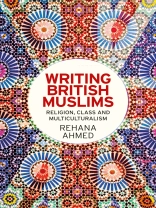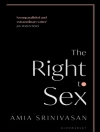The Rushdie affair, September 11 2001 and 7/7 pushed British Muslims into the forefront of increasingly fraught debate about multiculturalism. Stereotyping images have proliferated, reducing a heterogeneous minority group to a series of media soundbites.
This book examines contemporary literary representations of Muslims by British writers of South Asian Muslim descent – including Salman Rushdie, Hanif Kureishi, Monica Ali and Nadeem Aslam – to explore the contribution they make to urgent questions about multicultural politics and the place of Muslims within Britain. By focusing on class, and its intersection with faith, ‘race’ and gender in identity- and community-formation, it challenges the dichotomy of secular freedom versus religious oppression that constrains thinking about British Muslims, and offers a more nuanced perspective on multicultural debates and controversies.
Writing British Muslims will appeal to academics and postgraduate and final-year undergraduate students in the fields of postcolonial studies, English studies and cultural studies.
Jadual kandungan
Introduction
1. Muslim culture, class and controversy in twentieth-century Britain
2. Anti-racism, liberalism and class in The Satanic Verses and the Rushdie affair
3. The limits of liberalism in the work of Hanif Kureishi
4. Locating class in Monica Ali’s Brick Lane and its reception
5. Creative freedom and community constraint in Nadeem Aslam’s Maps for Lost Lovers
6. Reason to believe? Five British Muslim memoirs
Conclusion
Index
Mengenai Pengarang
Rehana Ahmed is Senior Lecturer in English Studies at Teesside University












